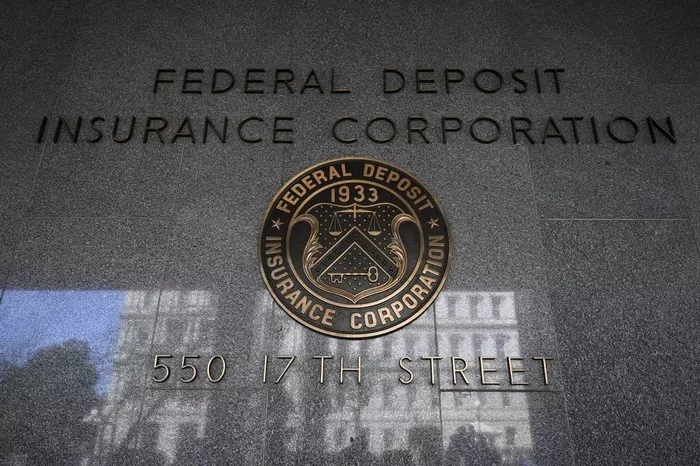Certificates of Deposit (CDs) are a popular financial product among conservative investors seeking a safe place to park their money while earning a modest interest rate. Offered by banks and credit unions, CDs require a commitment to leave a lump sum of money deposited for a fixed term, ranging from a few months to several years. In exchange for this commitment, the financial institution typically offers a higher interest rate compared to regular savings accounts. However, one of the critical aspects that contribute to the appeal of CDs is the assurance of security provided by the Federal Deposit Insurance Corporation (FDIC) insurance.
FDIC insurance plays a crucial role in ensuring the safety of depositors’ funds, especially in uncertain economic climates. The importance of this insurance cannot be overstated as it provides a safety net that protects depositors against the loss of their insured deposits if an FDIC-insured bank fails. Understanding the extent and limitations of this coverage is essential for anyone considering investing in CDs.
Yes, CDs are FDIC insured!
The FDIC, or Federal Deposit Insurance Corporation, is an independent agency created by the U.S. Congress in 1933 in response to the thousands of bank failures that occurred during the Great Depression. The primary role of the FDIC is to maintain public confidence and encourage stability in the financial system through the protection of deposits.
See also: What is a Variable Universal Life (VUL) Insurance Policy?
When you deposit money in a CD at an FDIC-insured bank, your money is automatically covered by FDIC insurance, provided that the total amount does not exceed the coverage limits. This insurance means that in the unlikely event of a bank failure, the FDIC will reimburse depositors for their insured deposits, up to the insurance limit.
FDIC insurance covers all types of deposits received at an insured bank, including savings accounts, checking accounts, money market deposit accounts, and CDs. The FDIC does not insure securities, mutual funds, or similar types of investments that banks and thrift institutions may offer.
Coverage Limits
As of the current regulations, the standard insurance amount is $250,000 per depositor, per insured bank, for each account ownership category. It is essential to understand how these limits apply to your deposits to ensure that your money is fully protected.
Ownership Categories Explained
Single Accounts: These are deposit accounts owned by one person, and the FDIC insures up to $250,000 per owner. For example, if you have a single account and a CD at the same bank, and the total amount is less than $250,000, your deposits are fully insured.
Joint Accounts: These are deposit accounts owned by two or more people. Each co-owner’s shares of every joint account at the same insured bank are added together and insured up to $250,000 per co-owner. For instance, if you and your spouse have a joint account with $500,000, each of you is insured up to $250,000.
Retirement Accounts: This category includes traditional IRAs and Roth IRAs, which are insured up to $250,000 per owner at each insured bank. Note that FDIC coverage only applies to the deposit portion of retirement accounts, not to the securities or mutual funds that might also be held in these accounts.
Trust Accounts: Revocable and irrevocable trust accounts have different insurance rules, which can sometimes provide greater coverage. The insurance for revocable trusts is up to $250,000 per beneficiary if certain conditions are met.
Exceptions to Coverage Limits
While the standard insurance limit is $250,000, there are ways to structure your accounts to increase your FDIC coverage. Here are some strategies:
Multiple Ownership Categories: By utilizing different ownership categories, you can significantly increase your coverage. For instance, an individual could have a single account, a joint account, and a retirement account at the same bank, each insured up to $250,000, thus increasing the total insured amount.
Accounts at Different Banks: FDIC insurance applies per depositor, per insured bank. By spreading your deposits across multiple FDIC-insured banks, you can ensure each deposit is fully covered.
Trust Accounts: Properly structured trust accounts can provide additional coverage. For example, a revocable trust with five beneficiaries can be insured up to $1,250,000 ($250,000 per beneficiary), provided the trust meets certain conditions.
Deposit Insurance for Public Units: Certain public unit accounts, such as those of the U.S. government, states, counties, municipalities, and school districts, have higher insurance limits. These accounts are insured up to $250,000 per official custodian per bank.
See also: Nippon Life Insurance: A Leading Force in Financial Security
Conclusion
In summary, Certificates of Deposit (CDs) are indeed FDIC insured, providing a high level of security for depositors. The FDIC insurance covers up to $250,000 per depositor, per insured bank, for each account ownership category. By understanding these coverage limits and employing strategies to maximize your insurance, such as using different ownership categories and spreading deposits across multiple banks, you can ensure that your investments in CDs are fully protected.
For personalized guidance on FDIC insurance and CD investing, it is highly recommended to consult with a financial advisor. They can help you navigate the complexities of FDIC coverage, optimize your deposit insurance, and tailor your investment strategy to meet your financial goals.


